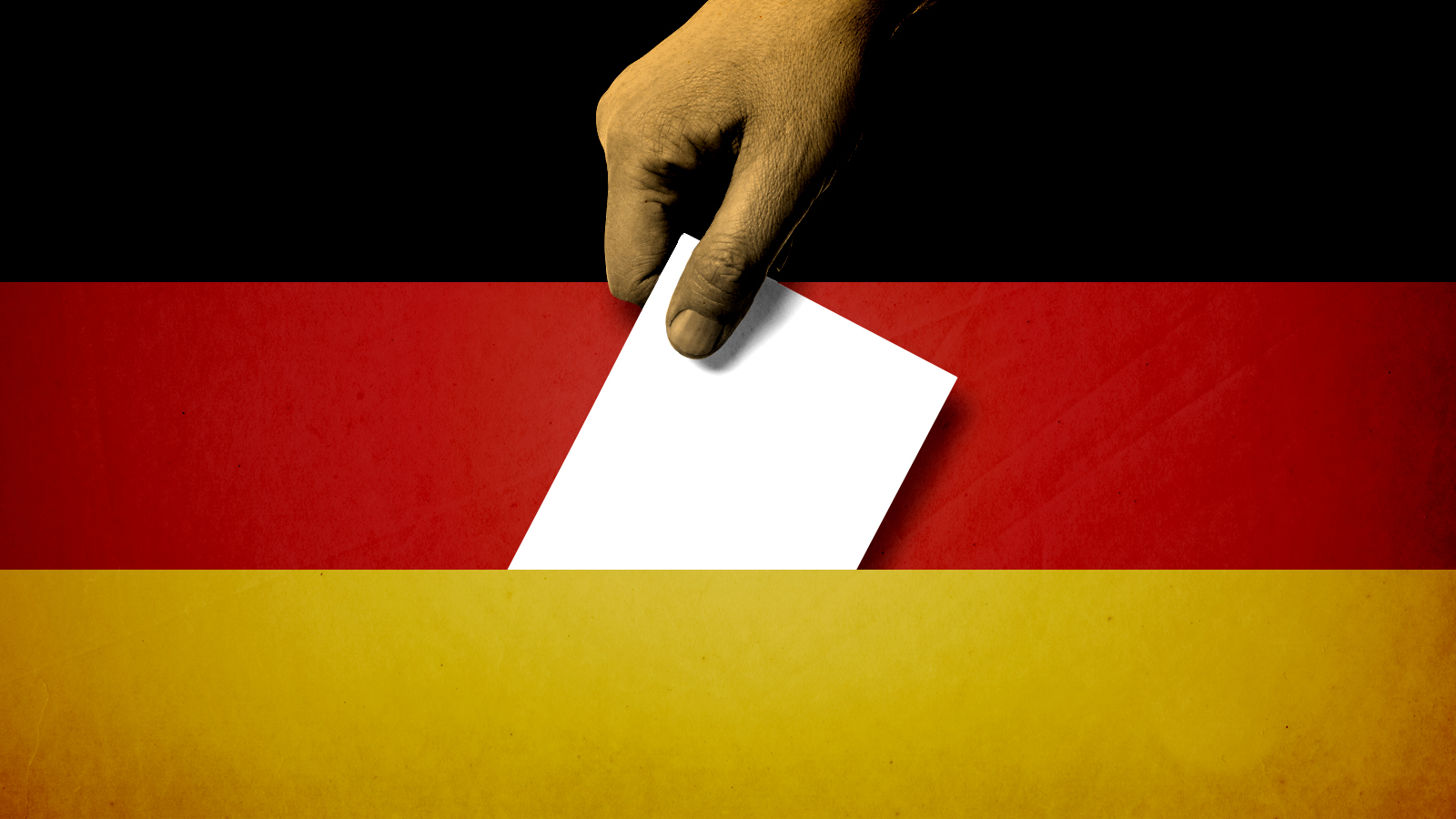2 big takeaways from the German election


A free daily email with the biggest news stories of the day – and the best features from TheWeek.com
You are now subscribed
Your newsletter sign-up was successful
There are two big stories to emerge from Sunday's elections in Germany.
The first is that the center-left managed to bounce back after a trouncing in 2017 that left the Social Democratic Party (SPD) with just 20.5 percent of the vote, its worst showing since World War II. On Sunday, the SPD did better, with 25.7 percent, but the newer, environmentally focused Green Party also won 14.8 percent, nearly six points higher than four years ago. That gave the center left a combined total of 40.5 — 11 points higher than in 2017 and a real sign of resurgence.
The second story is the bigger one — and that is the growing fragmentation of the German party system. A significant part of this story is the collapse in support for the center-right Christian Democrats (the CDU/CSU), which have governed the country under Angela Merkel since 2005 and on Sunday pulled in just 24.1 percent of the vote. That's the poorest showing ever for the center-right standard-bearers.
The Week
Escape your echo chamber. Get the facts behind the news, plus analysis from multiple perspectives.

Sign up for The Week's Free Newsletters
From our morning news briefing to a weekly Good News Newsletter, get the best of The Week delivered directly to your inbox.
From our morning news briefing to a weekly Good News Newsletter, get the best of The Week delivered directly to your inbox.
But the story is larger than the electoral decline of the CDU/CSU.
In 2002, country's two largest centrist parties — the CDU/CSU and SPD — won 77 percent of the vote, leaving the remaining parties to pick up the scraps. That figure dropped to 69.4 percent in 2005, and then to 56.8 percent in 2009. The centrist establishment surged back to prominence with 67.2 percent in 2013, but it collapsed to a new low of 53.4 percent four years ago. On Sunday, those two parties still finished first and second, but their combined total fell just short of a majority — with a mere 49.8 percent.
Now add in the fact that the SPD prevailed over the CDU/CSU by just 1.6 points, and that the third-placed party (the Greens) finished less than 10 points behind the center right, with the classically liberal FDP and far-right AFD just a few points behind the Greens, and we're left with a very widely dispersed vote.
This doesn't signal a surge of extremism. Unlike in France, where polling ahead of next year's presidential election shows two far-right candidates (National Rally's Marine Le Pen and talk-show rabblerouser Eric Zemmour) pulling around 30 percent of the vote, Germany's AFD lost some ground on Sunday, falling to 10.3 percent, 2.3 points lower than four years ago. The country's far-left party (Linke), meanwhile, did much worse, falling to just 4.9 percent from 9.2 in 2017.
A free daily email with the biggest news stories of the day – and the best features from TheWeek.com
What the results do show is a country lacking anything approaching consensus about which style of centrism it wants to govern the country. That will make forming a stable government quite challenging over the coming weeks and maybe even months of negotiation. It will also make decisive action quite difficult for whatever government does get formed.
Damon Linker is a senior correspondent at TheWeek.com. He is also a former contributing editor at The New Republic and the author of The Theocons and The Religious Test.
